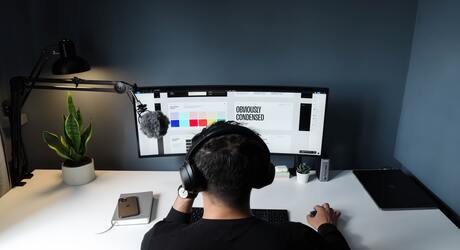I want your help. Please read the following and contribute to my future podcast. Soon I will start recording a podcast interview about ”Decolonizing Design: Towards A More Responsible and Sustainable Design”. I will interview Tove Martens, who is a graphic designer and educator with over ten years experience of running her own design studio as well as being an acknowledged lecturer at Linnaeus University. She currently pursues an MA in Graphic Design at Falmouth University.
We will discuss the power dynamics at play in design education and practice, and how we can redistribute or restructure them in order to move towards a more responsible and sustainable design.
Why focusing on design?
Well, New media and ICT have a massive impact on the development in different societies globally. We cannot separate technology and society. Technology is society and society is technology. Therefore, we must critically examine the professionals behind these technologies. They have a lot of power.
As Safiya Umoja Noble stresses in Algorithms of Oppression: Those who have the power to design systems hold the ability to prioritize hierarchical schemes that privilege certain types of information over others.
In Designs for the Pluriverse, Arturo Escobar writes that most design theory and practice never deal with questions of class, gender, race and coloniality. I will ask Tove Martens if she thinks designers are simply not interested in these matters or if the education has failed them? Why doesn’t design more explicitly deal with politics? Why still the focus on advertising and capitalism, why not more focus on designing a better society, aiming to fight racism, misogyny or class inequalities?
In Beyond the Pale, André Brock, writes that designers, along with content providers and policy makers, make the internet a representation of White, masculine, bourgeois, heterosexual and Christian culture. They recreate the social dynamics online that mirror offline patterns of racial interaction by marginalizing women and people of color.

In Using Fiction to Explore Social Facts, Elizabeth Chin writes that there are few social spaces more unrelentingly white than the art and design studio. This unreflective whiteness in design territories is unable to excavate, or perhaps uninterested in excavating, the racist and sexist ideologies embedded in Bauhaus-derived aesthetics that constitute good design for many.
Now, please, share your thoughts in a comment here below. What area do you find interesting? What are you thinking about regarding design practices and design education? What question to you want to raise in the podcast? Any kind of comment will do, really, the pod will be so much better with your contributions. Thanks!

